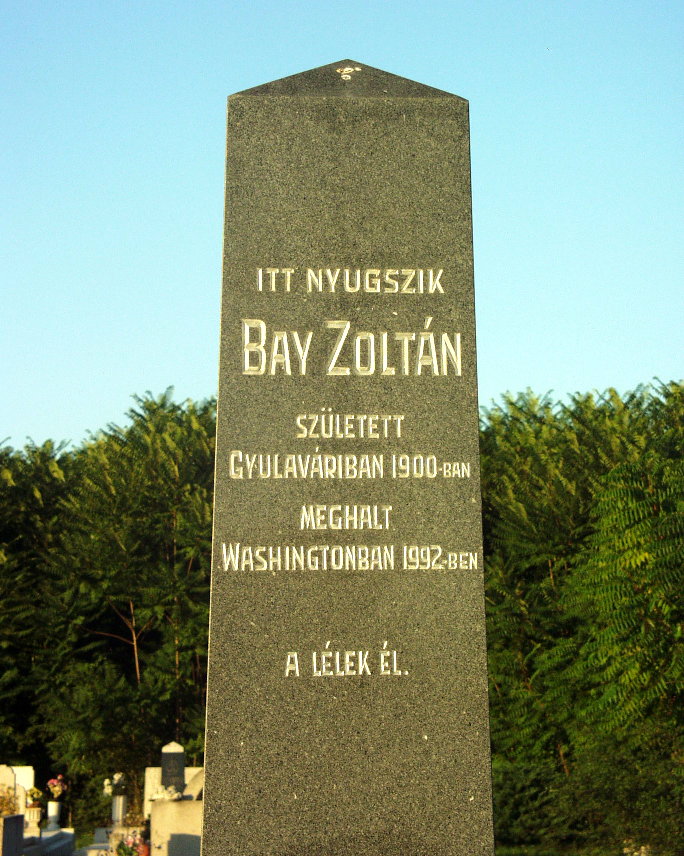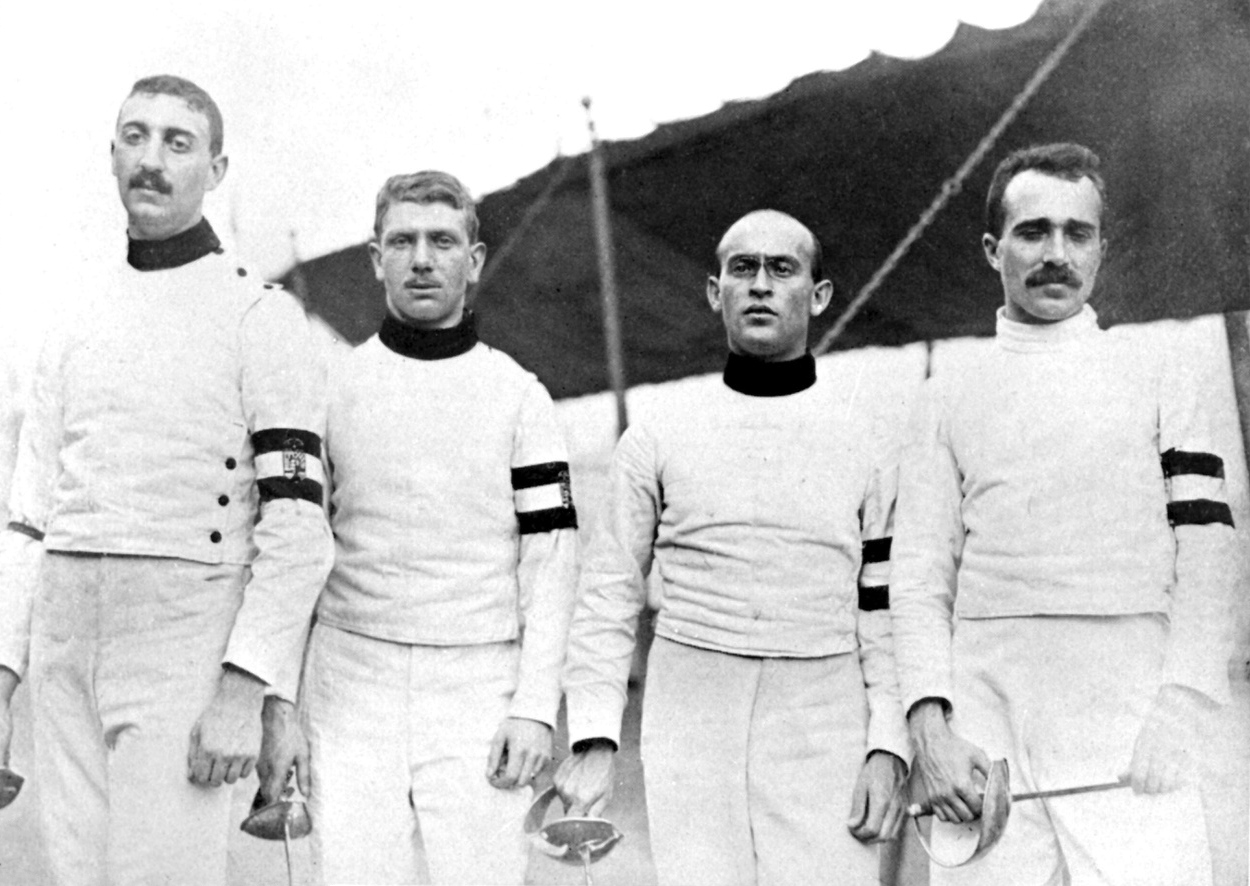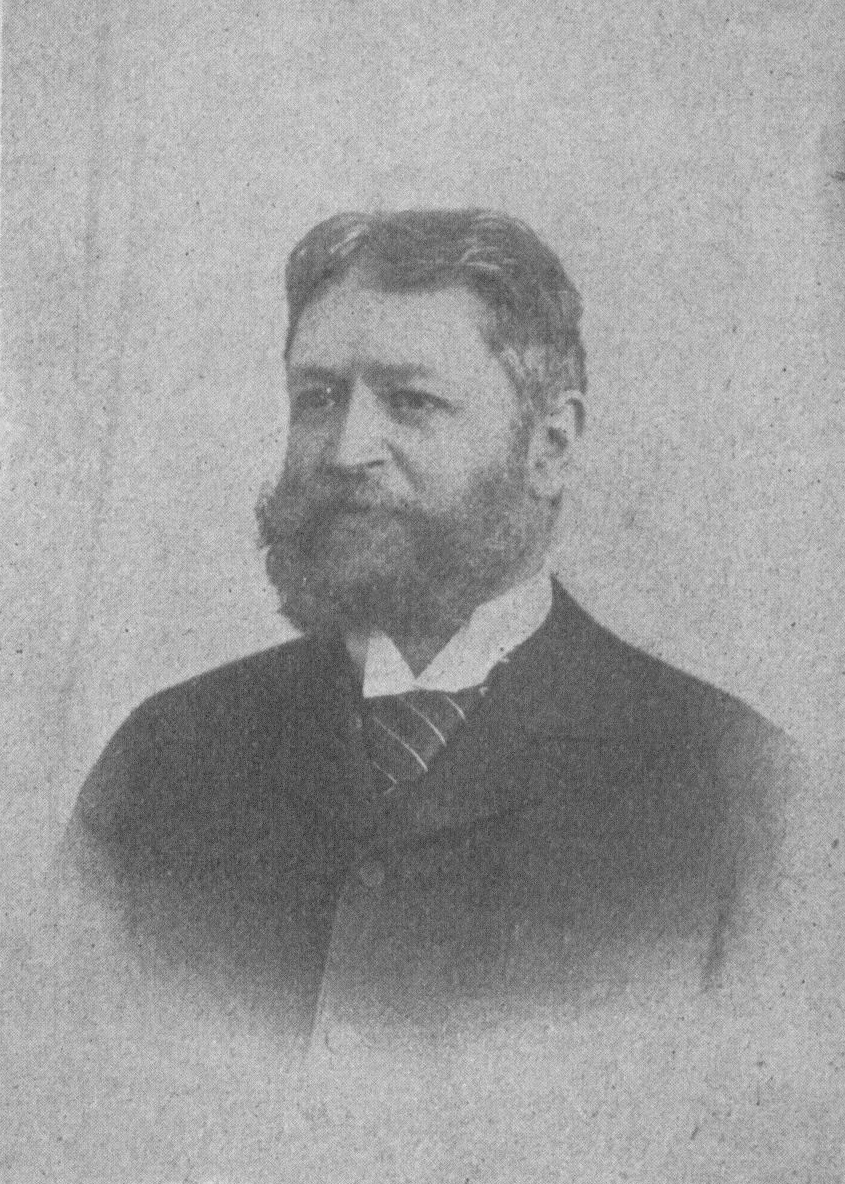|
Lajos (pelotari)
Lajos () is a Hungarian masculine given name, cognate to the English Louis. People named Lajos include: Hungarian monarchs: * Lajos I, 1326-1382 (ruled 1342-1382) * Lajos II, 1506-1526 (ruled 1516-1526) In Hungarian politics: * Lajos Aulich, second Minister of War of Hungary * Lajos Batthyány, first Prime Minister of Hungary * Count Lajos Batthyány de Németújvár, county head of Győr and Governor of Fiume * Lajos Dinnyés, Prime Minister of Hungary from 1947 to 1948 * Lajos Kossuth, Hungarian lawyer, politician and Regent of Hungary In football: * Lajos Baróti, coach of the Hungary national football team * Lajos Czeizler, Hungarian football coach * Lajos Détári, retired Hungarian football player * Lajos Sătmăreanu, former Romanian football player * Lajos Tichy, Hungarian footballer In art: * Lajos Csordák, Hungarian/Slovak painter * Lajos Markos, Hungarian American painter * Lajos Koltai, Hungarian cinematographer and film director In Hungarian literature: ... [...More Info...] [...Related Items...] OR: [Wikipedia] [Google] [Baidu] |
Lajos Tichy
Lajos Tichy (21 March 1935 – 6 January 1999), nicknamed "The Nation's Bomber", was a Hungarian footballer. He is the most prolific goalscorer in total matches in recorded history according to RSSSF with over 1912 goals scored in over 1301 matches and the most prolific goalscorer in total matches in one season in recorded history according to RSSSF with 201 goals scored in 85 matches. He played for the club Budapest Honvéd FC, scoring 247 goals in 320 league games. He also scored 51 goals in 72 internationals for the Hungary national football team, including four in the 1958 FIFA World Cup and three in the 1962 FIFA World Cup. He later became coach of the Honvéd youth team and from 1976 to 1982 he coached the first team, helping them win their first Hungarian championship in 25 years in 1980. Career statistics Club International Hungary * Central European International Cup: Runner-up: 1955–60 Individual * Central European International Cup top scorer: 1955– ... [...More Info...] [...Related Items...] OR: [Wikipedia] [Google] [Baidu] |
Kossuth Lajos Tér (Budapest Metro)
Kossuth Lajos Square ( hu, Kossuth Lajos tér), also known as Kossuth Square (), is a city square situated in the Lipótváros neighbourhood of Budapest, Hungary, on the bank of the Danube. Its most notable landmark is the Hungarian Parliament Building (). There is a station of the Line 2 (Budapest Metro), M2 (East-West) line of the Budapest Metro on the square as well as a stop for the scenic Tram No. 2. Name and history The square, renamed in 1927 in honour of Lajos Kossuth, was previously known by several names including; Országház tér ("Parliament Square") (1898–1927), Tömő tér or Stadt Schopper Platz in German language, German ("Landfill Square") (1853–1898). This name recalls how the low-lying territory flanking the river, then outside the town of Pest (city), Pest, was filled with rubbish to raise the level of the ground. The first recorded name was Stadtischer Auswind Platz ("Unloading Square for the Ships") in 1820. In the second half of the 19th century, ... [...More Info...] [...Related Items...] OR: [Wikipedia] [Google] [Baidu] |
Zoltán Lajos Bay
Zoltán Lajos Bay (July 24, 1900 in Gyulavári – October 4, 1992 in Washington, D.C.)"Fizikai Szemle 1999/5 - Zsolt Bor: OPTICS BY HUNGARIANS" (with Zoltán Bay), József Attila University, Szeged, Hungary, 199KFKI-Hungary-Bor/ref> was a Hungarian physicist, professor, and engineer who developed technologies, including tungsten lamps and microwave devices. He was the leader of the second group to observe radar echoes from the Moon ( Moonbounce). From 1930, he worked at the University of Szeged as a professor of theoretical physics. In 1923 at Tungsram Ltd., a research laboratory was established for improving light sources, mainly electric bulbs. The head of that laboratory was Ignác Pfeifer, whose research staff included Zoltán Bay, along with Tivadar Millner, Imre Bródy, György Szigeti, Ernő Winter, and many others. György Szigeti worked together with Zoltán Bay on metal-vapor lamps and fluorescent light sources. They received a U.S. patent on "Electroluminescent ... [...More Info...] [...Related Items...] OR: [Wikipedia] [Google] [Baidu] |
Lajos Werkner
Lajos Werkner (23 October 1883 – 12 November 1943) was a Hungarian Olympic champion sabre fencer. Early and personal life Werkner was born in Budapest, Hungary, and was Jewish. Werkner was educated as a mechanical engineer. Fencing career Wernker trained at the Nemzeti Vívó Club (NVC) in Budapest. Werkner won team gold medals at the 1908 Olympics in London at 24 years of age, and at the 1912 Olympics in Stockholm at 28 years of age, placing sixth-seventh individually. He won the Hungarian Championship in sabre in 1912–14. After retiring from competitions in 1914, Werkner remained active as a sports official. Hungarian Olympic Committee Werkner died at age 60 in Budapest. Hall of Fame In 1999 Werkner was inducted into th ...[...More Info...] [...Related Items...] OR: [Wikipedia] [Google] [Baidu] |
Lajos Pósa (mathematician)
Lajos Pósa (born December 9, 1947 in Budapest) is a Hungarian mathematician working in the topic of combinatorics, and one of the most prominent mathematics educators of Hungary, best known for his mathematics camps for gifted students. He is a winner of the Széchenyi Prize. Paul Erdős's favorite "child", he discovered theorems at the age of 16. Since 2002, he has worked at the Rényi Institute of the Hungarian Academy of Sciences; earlier he was at the Eötvös Loránd University, at the Departments of Mathematical Analysis, Computer Science. Biography He was born in Budapest, Hungary on December 9, 1947. His father was a chemist, his mother a mathematics teacher. He was a child prodigy. While still in elementary school, the educator Rózsa Péter, friend of his mother introduced him to Paul Erdős, who invited him for lunch in a restaurant, and bombarded him with mathematical questions. Pósa finished the problems sooner than his soup, which impressed Erdős, who himself ... [...More Info...] [...Related Items...] OR: [Wikipedia] [Google] [Baidu] |
Lajos Bárdos
Lajos Bárdos (1 October 1899 – 18 November 1986) was a composer, conductor, music theorist, and professor of music at the Franz Liszt Academy of Music, in Budapest, Hungary, where he had previously studied under Albert Siklós and Zoltán Kodály. His younger brother, György Deák-Bárdos, was also a composer. Together with Kodály, Bárdos laid the foundations of 20th-century Hungarian choral music. From 1928 to 1967 he was a professor at the Academy, where he reformed the syllabus––emphasizing the training of choral conductors, the teaching of church music history, and instruction in music theory and prosody. In 1931, along with György Kerényi and Gyula Kertész, he founded the publishing company Magyar Kórus (Hungarian Chorus), publishing 2,000 works of old masters and modern composers over the next 20 years, before being shut down by the communist regime in 1950. As the most active disseminator of sacred music in Hungary, Bárdos was targeted at the time with thr ... [...More Info...] [...Related Items...] OR: [Wikipedia] [Google] [Baidu] |
Lajos Steiner
Lajos Steiner (14 June 1903, in Nagyvárad ( Oradea) – 22 April 1975, in Sydney) was a Hungarian–born Australian chess master. Steiner was one of four children of Bernat Steiner, a mathematics teacher, and his wife Cecilia,(née Schwarz). His elder brother was Endre Steiner. He was educated at the Technical High School in Budapest, and graduated in 1926 with a diploma in mechanical engineering from the Technikum Mittweida in Germany. In 1923, he tied for 4-5th in Vienna. In 1925 he took 2nd, behind Sándor Takács, in Budapest. In 1927, he won in Schandau and tied for 2nd-3rd in Kecskemét. In 1927/28, he took 2nd. In 1929, he took 2nd in Bradley Beach. In 1931, he won in Budapest ( HUN-ch), took 5th in Vienna, and tied for 5-6th in Berlin. The event was won by Herman Steiner. In 1932/33, he tied for 3rd-4th in Hastings (Salo Flohr won). In 1933, he tied for 2nd-3rd in Maehrisch-Ostrau (Ostrava). The event was won by Ernst Grünfeld. In 1933, he took 4th in Budapest. ... [...More Info...] [...Related Items...] OR: [Wikipedia] [Google] [Baidu] |
Lajos Portisch
Lajos Portisch (born 4 April 1937) is a Hungarian chess Grandmaster, whose positional style earned him the nickname, the "Hungarian Botvinnik". One of the strongest non-Soviet players from the early 1960s into the late 1980s, he participated in twelve consecutive Interzonals from 1962 through 1993, qualifying for the World Chess Championship Candidates Cycle a total of eight times (1965, 1968, 1974, 1977, 1980, 1983, 1985, and 1988). Portisch set several all-time records in Chess Olympiads. In Hungarian Chess Championships, he either shared the title or won it outright a total of eight times (1958, 1959, 1961, 1964, 1965, 1971, 1975, and 1981). He won many strong international tournaments during his career. In 2004, Portisch was awarded the title of ' Nemzet Sportolója' (Sportsman of the Nation), Hungary's highest national sports achievement award. He still competes occasionally. His main hobby is singing operatic arias; he has a fine baritone voice, a quality shared by Vasi ... [...More Info...] [...Related Items...] OR: [Wikipedia] [Google] [Baidu] |
Lajos Hevesi
Lőwy Hevesi Lajos, or Ludwig Hevesi (December 20, 1843, Heves, Hungary – February 17, 1910, Vienna) was a Hungarian journalist and writer. He studied medicine and classical philology in Budapest and Vienna, but soon turned to writing, and as of 1865 he was an active journalist and author. In 1866, he became engaged as a contributor to the "''Pester Lloyd''", and later to the "'' Breslauer Zeitung''", for which publications he wrote humorous feuilletons. In 1875, Hevesi settled in Vienna and became the associate editor for the art department of the Wiener '' Fremden-Blatt''. He also wrote dramatic criticisms on the performances in the ''Hofburgtheater''. During 1871-74 he edited "''Kleine Leute''", a journal for the young. The first 7 volumes of the journal originated exclusively from his pen. In conjunction with a few friends he founded the Hungarian humor publication "'' Borsszem Jankó''", which soon became a popular journal. Works * ''A kereskedelmi levelezésnek kéziköny ... [...More Info...] [...Related Items...] OR: [Wikipedia] [Google] [Baidu] |
Lajos Egri
Lajos N. Egri (June 4, 1888 – February 7, 1967) was a Hungarian-American playwright and teacher of creative writing. He is the author of ''The Art of Dramatic Writing'', which is widely regarded as one of the best works on the subject of playwriting, as well as its companion textbook, ''The Art of Creative Writing''. Beyond the theater, his methods have also been used to write short stories, novels, and screenplays. Early years Born into a Jewish family in Eger, Austria-Hungary, Egri came to the US in 1906 and worked in a New York garment factory as a tailor and presser. He was an active member of the International Ladies' Garment Workers Union. Playwright Egri wrote his first three-act play at the age of ten, according to his biographical sketch in ''The Art of Dramatic Writing''. In 1927, ''Rapid Transit'', Egri's expressionist play, was translated from Hungarian and produced at the Provincetown Playhouse in New York. Casting about for some adequate means of conveying a se ... [...More Info...] [...Related Items...] OR: [Wikipedia] [Google] [Baidu] |
Lajos Bíró
Lajos Bíró (; born Lajos Blau; 22 August 1880 – 9 September 1948) was a Hungarian novelist, playwright, and screenwriter who wrote many films from the early 1920s through the late 1940s. Life He was born in Nagyvárad, Kingdom of Hungary, Austro-Hungarian Empire (now Oradea, Romania) and eventually moved to the United Kingdom where he worked as a scenario chief for London Film Productions run by Alexander Korda, collaborating on many screenplays with Arthur Wimperis. He died in London on 9 September 1948 of a heart attack. He is buried in the northern section of Hampstead Cemetery in north London. In 1929, he was nominated for an Academy Award for Best Original Writing for '' The Last Command'', but lost to Ben Hecht for ''Underworld'', the only other nomination in this category. Novels *''A Serpolette'' (The Serpolette, 1914) *''A bazini zsidók'' (The Jews of Bazin; 1921). Plays * ''Szinmü négy felvon (Hotel Imperial)'' (1917) * ''Gods and Kings'', six one-ac ... [...More Info...] [...Related Items...] OR: [Wikipedia] [Google] [Baidu] |



.jpg)
